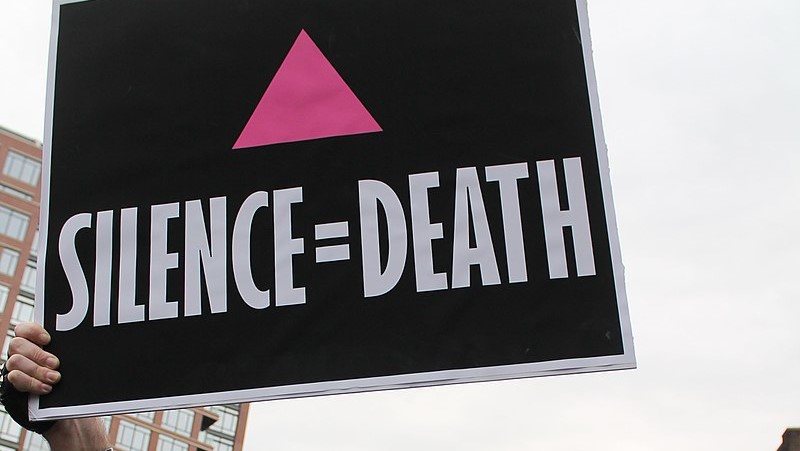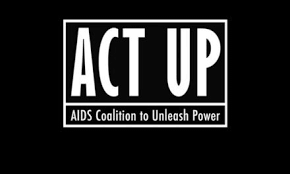AIDS Activism: A perfect example for health care advocacy
AIDS activists have played a crucial role in bringing attention to the HIV/AIDS epidemic and pushing for research, recognition, and treatment. In the early days of the epidemic, when HIV/AIDS was first identified, there was a lack of information and resources dedicated to understanding and addressing the disease. Activists, many of whom were members of the LGBTQ+ community and people living with HIV/AIDS, stepped up to fill this gap.

LGBTQ+
The LGBTQ+ community was a huge advantage for AIDS activists for several reasons.
The community has a long history of organizing and advocating for their rights. They have experience with grassroots activism, community building, and coalition-building. This experience helped them to quickly mobilize and organize in response to the AIDS epidemic, and to effectively advocate for more resources and attention to be directed towards the disease.
In addition the LGBTQ+ community was disproportionately affected by the HIV/AIDS epidemic, which gave them a sense of urgency and personal stake in the fight against the disease. Many LGBTQ+ activists were also people living with HIV/AIDS themselves, which added a powerful and personal element to their activism.
The LGBTQ+ community has also a strong sense of community, and their activism was driven by the need to support and care for their own community members. This helped to create a sense of solidarity and shared purpose among activists, which was crucial to their success.
Achievements
One of the most significant contributions of AIDS activists was their ability to bring the disease to the public’s attention. They organized rallies, protests, and other public demonstrations to demand more funding for research and better access to treatment. They also worked to educate the public about the disease and to dispel myths and misconceptions that were prevalent at the time.
Their activism also led to increased recognition of the disease by governments and international organizations. They were able to pressure governments to increase funding for research and to develop policies to support people living with HIV/AIDS. Additionally, the activism led to the development of the Global Fund to Fight AIDS, Tuberculosis and Malaria, which has provided billions of dollars in funding for HIV/AIDS programs worldwide.
Thanks to the activism, research on HIV/AIDS has progressed significantly. Today, there are effective antiretroviral therapies that can keep people living with HIV/AIDS healthy for many years. Additionally, the development of pre-exposure prophylaxis (PrEP) and post-exposure prophylaxis (PEP) has greatly reduced the risk of HIV transmission.
ACT UP

Maybe the most influential AIDS activist group was ACT UP (AIDS Coalition to Unleash Power). Founded in 1987, the group was made up of people living with HIV/AIDS and their allies, who came together to demand action from government, pharmaceutical companies, and other organizations. ACT UP was known for its bold and confrontational tactics, such as protests, sit-ins, and civil disobedience, which helped to bring attention to the AIDS epidemic.
ACT UP played a crucial role in pressuring the government and pharmaceutical companies to increase funding for research and to lower the cost of AIDS drugs. They also worked to educate the public about the disease and to dispel myths and misconceptions about HIV/AIDS. Through their activism, ACT UP helped to change the public conversation around HIV/AIDS and to push for more effective policies and treatments.Their activism had a significant impact on the lives of people living with HIV/AIDS.
Powerful example
The activism of AIDS activists serves as a powerful example for other neglected diseases, such as Long Covid and ME/CFS. Activists can play a vital role in bringing attention to these conditions, pushing for research and recognition, and advocating for better access to treatment. By working together and using the lessons learned from the AIDS epidemic, activists can help ensure that people living with these diseases receive the support and care they need.
This is also possible for illnesses that do not have access to already established communities such as the LGBTQ+ community. Thanks to the internet it is a lot easier for activists to connect, organize and mobilize protests, and it has made it easier for them to access and disseminate information. The internet has also provided new ways for activists to engage with a broader audience and to amplify their message, which has been crucial in building support for their cause and effecting change.
AIDS activists have been instrumental in bringing attention to the HIV/AIDS epidemic and pushing for research, recognition, and treatment. Their activism serves as a powerful example for other neglected diseases and highlights the importance of advocacy in addressing public health crises.